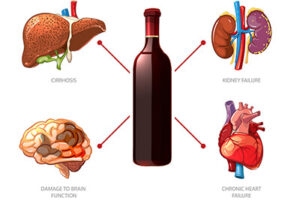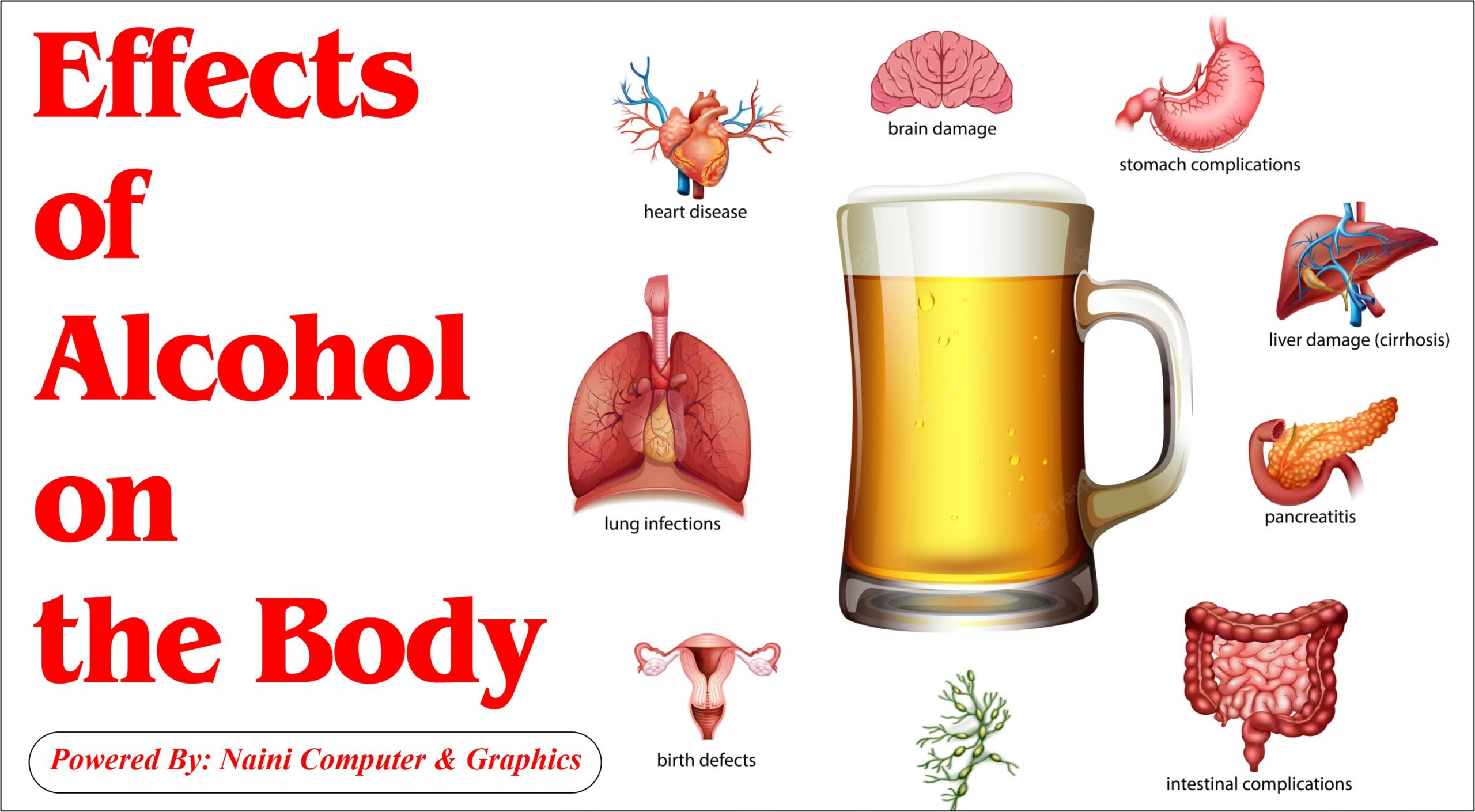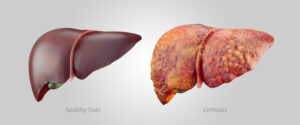Effects of Alcohol on body.
Alcohol can have various effects on the body, Alcohol short term and long term. Here are some of the key effects of alcohol:

1. Central Nervous System: Alcohol is a depressant that affects the central nervous system. It can initially lead to feelings of relaxation and euphoria, but excessive consumption can impair judgment, coordination, and reaction time. It can also lead to drowsiness, slurred speech, and loss of inhibitions.
2. Liver: The liver is primarily responsible for metabolizing alcohol. Excessive alcohol consumption can lead to liver damage and conditions such as fatty liver, alcoholic hepatitis, and cirrhosis. Long-term heavy drinking increases the risk of liver disease.
3. Digestive System: Alcohol can irritate the digestive system, leading to inflammation of the stomach lining (gastritis), increased acid production, and an increased risk of stomach ulcers. Alcohol can also interfere with nutrient absorption and contribute to malnutrition.
4. Cardiovascular System: Moderate alcohol consumption (one drink per day for women, and up to two drinks per day for men) may have some cardiovascular benefits, such as increasing HDL (good) cholesterol levels and reducing the risk of heart disease. However, excessive alcohol intake can elevate blood pressure, increase the risk of arrhythmias, weaken the heart muscle, and contribute to the development of various heart problems.
5. Immune System: Heavy drinking weakens the immune system, making the body more susceptible to infections and diseases. Long-term alcohol abuse can increase the risk of pneumonia, tuberculosis, and other respiratory infections.
6. Pancreas: Alcohol can cause inflammation of the pancreas (pancreatitis), which can be a painful and serious condition. Chronic pancreatitis can develop with long-term heavy drinking and can lead to digestive problems and diabetes.
7. Cancer: Excessive alcohol consumption is associated with an increased risk of various types of cancer, including liver, mouth, throat, esophageal, breast, and colorectal cancers.
8. Mental Health: While alcohol may initially produce a temporary mood boost, it can contribute to mental health issues. Heavy drinking is linked to depression, anxiety, and an increased risk of suicide. Alcohol also worsen existing mental health of conditions.
9. Dependency and Addiction: Alcohol is an addictive substance, and long-term, heavy consumption can lead to alcohol dependence and addiction. Alcoholism can have severe physical, psychological, and social consequences.
It is important to note that these effects can vary depending on individual factors such as genetics, overall health, and patterns of alcohol consumption. It is always advisable to consume alcohol in moderation or avoid it altogether if you have specific health conditions or are at higher risk of developing alcohol-related problems. If you or someone you know is struggling with alcohol addiction, seeking professional help from healthcare providers or support groups is crucial.





